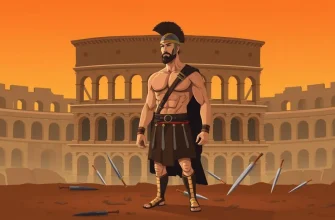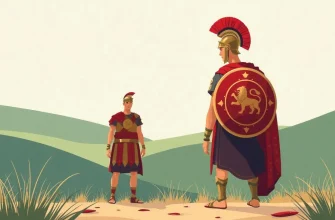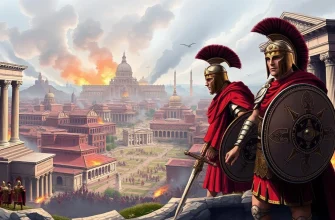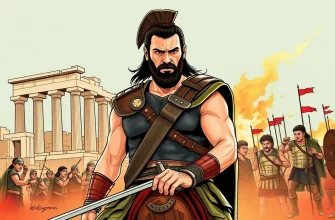The Roman Empire, with its rich history of power, betrayal, and grandeur, has always been a fertile ground for cinematic storytelling. This curated list of films delves into the lives of some of Rome's most iconic emperors, offering viewers a blend of historical accuracy, dramatic flair, and cinematic spectacle. Whether you're a history buff or simply love epic tales of ambition and downfall, these movies provide a window into the past, showcasing the lives of those who ruled one of the greatest empires in history.

Quo Vadis (1951)
Description: Set during the reign of Nero, this film explores the persecution of Christians and the love story between a Roman general and a Christian slave. It's a classic depiction of the clash between pagan Rome and the emerging Christian faith.
Fact: The film was nominated for eight Academy Awards, winning two. It was one of the first films to be shot in Italy after World War II.
 Watch Now
Watch Now 
Ben-Hur (1959)
Description: Although not solely about an emperor, this epic tale set during the time of Jesus Christ includes interactions with Roman officials and the backdrop of Roman rule in Judea.
Fact: The chariot race scene was filmed over three months, with 15,000 extras. The film won 11 Academy Awards, tying the record for the most Oscars won by a single film.
 Watch Now
Watch Now 
The Fall of the Roman Empire (1964)
Description: This epic historical drama focuses on the decline of the Roman Empire, with a particular emphasis on the reign of Marcus Aurelius and the subsequent turmoil under Commodus.
Fact: The film was one of the most expensive ever made at the time, with a budget of $19 million. It was also one of the last major epics of the classical Hollywood era.
 Watch Now
Watch Now 
Gladiator (2000)
Description: This epic film follows Maximus, a Roman general betrayed by Commodus, the new Emperor, who becomes a gladiator to seek revenge. It captures the essence of Roman politics, the brutality of the arena, and the personal vendettas of the time.
Fact: Russell Crowe trained for six months to get into shape for his role as Maximus. The film won five Academy Awards, including Best Picture.
 Watch Now
Watch Now 
The Last Legion (2007)
Description: While not strictly about an emperor, this film involves the last Roman emperor, Romulus Augustus, and his journey with a group of warriors to restore the empire. It blends historical fiction with fantasy elements.
Fact: The film features a young Colin Firth as the leader of the Roman legion. It's loosely based on the novel by Valerio Massimo Manfredi.
 Watch Now
Watch Now 
Centurion (2010)
Description: Set during the reign of Emperor Hadrian, this film follows a Roman centurion and his squad as they fight for survival against the Picts in northern Britain.
Fact: The film was inspired by the disappearance of the Ninth Legion in Britain. It was directed by Neil Marshall, known for his work in horror and action genres.
 Watch Now
Watch Now 
The Eagle (2011)
Description: While not directly about an emperor, it's set in Roman Britain during the reign of Hadrian, exploring themes of duty, honor, and the Roman military presence in the region.
Fact: The film is based on the novel "The Eagle of the Ninth" by Rosemary Sutcliff. It was shot in Scotland, providing a rugged backdrop for the story.
 Watch Now
Watch Now 
Imperium: Augustus (2003)
Description: This TV movie focuses on the life of Augustus, the first Roman Emperor, detailing his rise to power, his relationship with Julius Caesar, and the establishment of the Pax Romana.
Fact: The film was shot in Bulgaria, which provided a cost-effective backdrop for the ancient Roman setting. Peter O'Toole stars as Augustus.
 Watch Now
Watch Now 
Nero (2004)
Description: A made-for-TV movie that delves into the life of Emperor Nero, known for his extravagance, the Great Fire of Rome, and his persecution of Christians.
Fact: The film was part of a series of historical dramas produced for Italian television. It portrays Nero in a somewhat sympathetic light, focusing on his artistic ambitions.
 30 Days Free
30 Days Free 
Caligula (1979)
Description: A controversial film that portrays the life of the infamous Emperor Caligula, known for his cruelty and eccentricities. Despite its notoriety, it provides a glimpse into the decadence of Rome under his rule.
Fact: The film was produced by Penthouse magazine founder Bob Guccione, leading to its explicit content. It was originally intended to be a serious historical drama but became infamous for its adult scenes.
 30 Days Free
30 Days Free 








